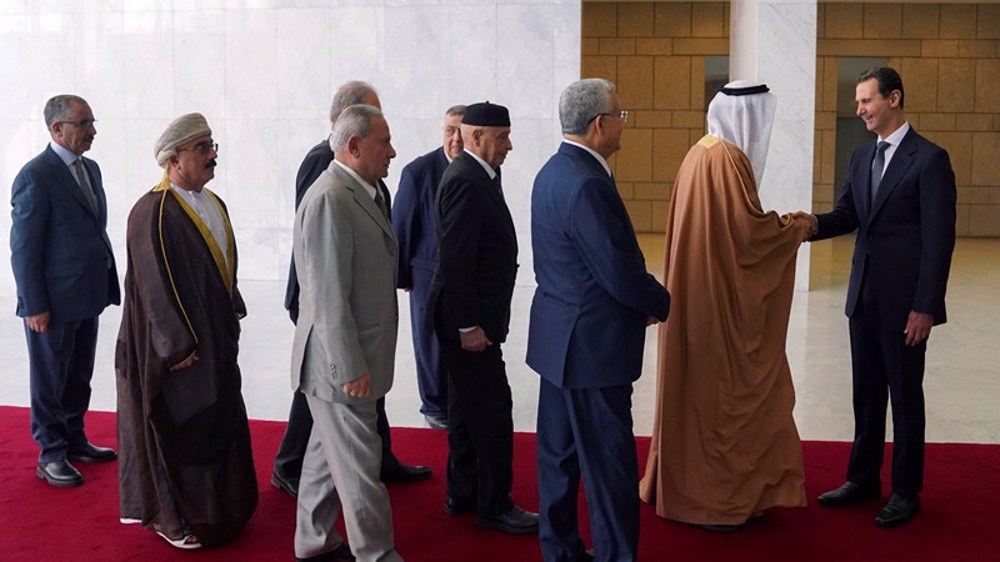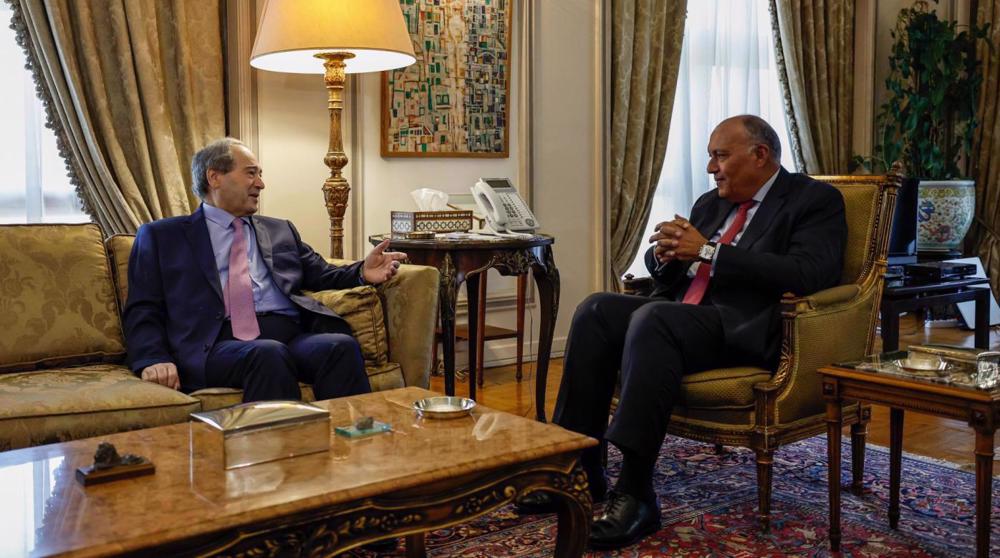‘Saudi-Syria détente, Damascus’ Arab League return win for Iran, setback for US’
The growing diplomatic engagement between the Syrian government and its Arab neighbors amid rapidly shifting geopolitical dynamics represents a win for Iran and a setback for the United States, according to a report.
The US-based outlet Bloomberg, citing “three people briefed by the Saudis and one person close to the UAE government” on Wednesday that following the rapprochement between Saudi Arabia and Syria, Riyadh is now taking steps to help bring Syria back into the Arab League as early as next month.
The report said Syria’s return to the Arab League “would be a win for Iran and Russia and in defiance of US warnings.”
“A successful reconciliation of Syria would represent a blow to the influence of the US in the Middle East, and fortify a divide between the region and Western governments," it stated, pointing to shifting power balance in the new multipolar world.
More important than that, Bloomberg said, such a reconciliation will be a “major win for Iran”, which has supported the Arab country throughout the conflict.
The outlet quoted its sources as saying that “the US is aware of the push, has warned against it but has realized it can do little to stop it.”
Washington has repeatedly warned countries against normalization with Syria, but despite the warnings, many Arab countries have recently extended an olive branch to Damascus and opened a new chapter in their relations.
Syria’s membership in the Arab League was suspended following the breakout of the foreign-backed militancy in the Arab country in 2011.
Saudi Arabia, along with several other Arab states as well as Turkey, cut ties with Syria and funneled billions of dollars worth of arms to the Arab country throughout the years to prop up militants fighting to topple the Syrian government.
Growing worries in Washington
This follows a China-mediated normalization agreement between Iran and Saudi Arabia concluded in Beijing last month, which ended a seven-year rupture in their bilateral ties following the Saudi execution of a senior Shia cleric.
Iran’s Foreign Minister Hossein Amir-Abdollahian is expected to meet his Saudi counterpart Faisal bin Farhan in Beijing on Thursday, according to reports.
A senior State Department official officially welcomed that normalization deal, saying it can have a “calming effect” on the region.
But the report in Bloomberg said, “many in Washington fear Saudi Arabia’s eagerness to pivot to China and Iran … may in some way harm US national-security interests in the region.”
Last week, several former top US officials familiar with the Middle East warned President Joe Biden in a letter that not being more forceful in blocking Arab normalization with Assad was “short-sighted and damaging to any hope for regional security and stability.”
Israeli media have also reported wariness among the regime’s officials over the recent normalization deals.
Riyadh and Damascus reached an agreement last month to reopen their embassies and resume consular services after the holy month of Ramadan.
The United Arab Emirates, Bahrain and Egypt are among other Arab states that have recently resumed diplomatic ties with Damascus.
Syrian Foreign Minister Faisal Mekdad visited the Egyptian capital of Cairo last week, in the first such visit by a top Syrian diplomat in over a decade.
Turkey is also seeking its own rapprochement with Syria.
5 Israeli forces killed as Palestinian fighters face up to regime’s war machine
VIDEO | Israeli settler killed during strike against Tel Aviv; fresh aggression targets Yemen’s capital
VIDEO | Yemen’s missile strikes on Tel Aviv
Iran to open 6 GW of new power capacity by next summer
VIDEO | South Korean rallies set the stage for battle over Yoon's impeachment
Hamas, other Palestinian groups say Gaza ceasefire deal ‘closer than ever’
VIDEO | Press TV's news headlines
Iran condemns ‘violent’ attack on Christmas market in Germany
















 This makes it easy to access the Press TV website
This makes it easy to access the Press TV website